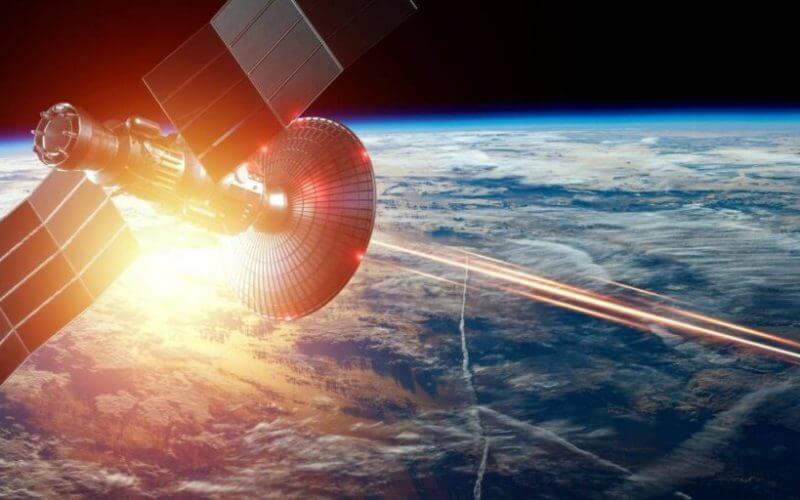Last week, a new report released by the Mitchell Institute for Aerospace Studies found the United States Space Force requires new offensive weapons and sophisticated defense to counter China's increasing deployment of space arms against the American military in a potential conflict.
According to researchers, the U.S. military has ignored the idea of deploying space weapons since the end of the Cold War. The report explains that the U.S. must "take urgent action to respond to this mounting threat or risk losing its ability to deter Chinese aggression and maintain peace in key regions around the globe."
The report, written by retired Space Force Colonel Charles Galbreath, a former U.S. Space Force operator who was the deputy chief technology and innovation officer at the Space Fore headquarters, explained that the Biden administration's efforts on diplomacy and push to eek norms of space behavior between Washington and Beijing are not enough to deter conflict, given that China understands the vulnerability of U.S. satellites.
Galbreath said that U.S. combatant commanders should "have a wide range of options for offensive counter space operations to defeat space-enabled attacks in the event of a major conflict with China."
The report did stop short of calling for deploying ground-based anti-satellite missiles, arguing instead for the Space Force to have weapons that could "responsibly" attack or disable Bejing's military satellites. Galbreath recommended weapons, including ground and space-based lasers, jammers, and other-directed energy systems, along with better defenses for satellites, including larger fuel tanks.
Galbreath told the Washington Times that hostile American regimes, including Russia and China, have "deployed counter space capabilities specifically to attack U.S. space systems."
The former Space Force Colonel explained that America must "respond in a credible and proportional manner."
Galbreath told the Washington Times that while efforts to create norms of responsible behavior, improve space domain awareness, and increase resilience were "necessary," they were "insufficient" at stopping potential enemies from attacking U.S. space capabilities.
The report also warned that debris in space could provide a series of collisions of satellites in low-Earth orbit known as the Kessler syndrome, which occurred after a Chinese anti-satellite missile test in 2007 led to a large field of high-speed orbiting debris that threatened spacecraft. In 2022, the Biden administration announced a unilateral imposition moratorium on anti-satellite missile tests to prevent the cause of space debris.
Despite America's recent moratorium on such military tests, China and Russia continue to engage in such action.
According to Galbreath, China has built an array of offensive space weapons, including ground-launched missiles that can hit U.S. satellites in all orbits, satellites with robotic arms to maneuver and destroy satellites, lasers, jammers, and advanced cyber weaponry that can target satellites, and ground links.
According to the report, the Space Force jammer used by the U.S. Space Force will "not effectively protect U.S. space capabilities, nor does it have the capacity to hold the increasing number of Chinese space capabilities at risk."
The report, instead, calls for "responsible counter-space campaigning."
In the last decade, experts like Galbreath and others have noted China's increasing military buildup among its ground forces, air force, and navy, thanks to Beijing's economy and its alliances with anti-American regimes, including Russia and the Islamic Republic of Iran.
China has grown its military presence in space warfare through its People's Liberation Army (PLA), creating weaponry such as satellite equipment with powerful lasers and microwave guns to disrupt satellites.
Since 2001, the PLA has improved its hypersonic missile capabilities, creating a fractional orbital bombardment system to destroy ground targets.
Galbreath said that the U.S. must act quickly to develop and deploy counter-space systems, or it would destroy America's "deterrent posture and place our military at increased risk," he told the Washington Times.
Related Story: China to Build Lunar Base out of Moon Soil in Next 5 Years










